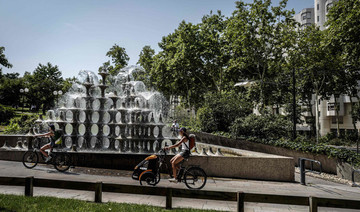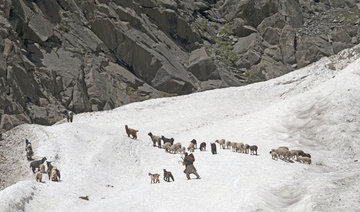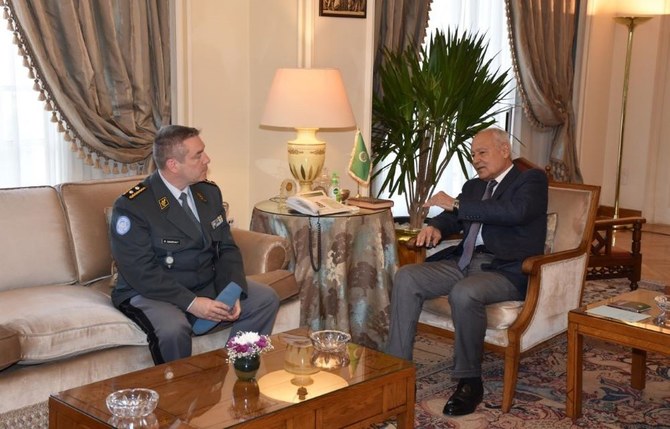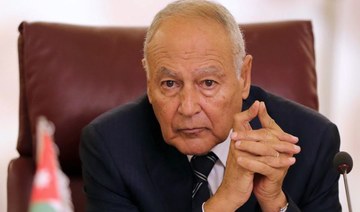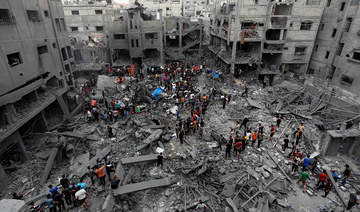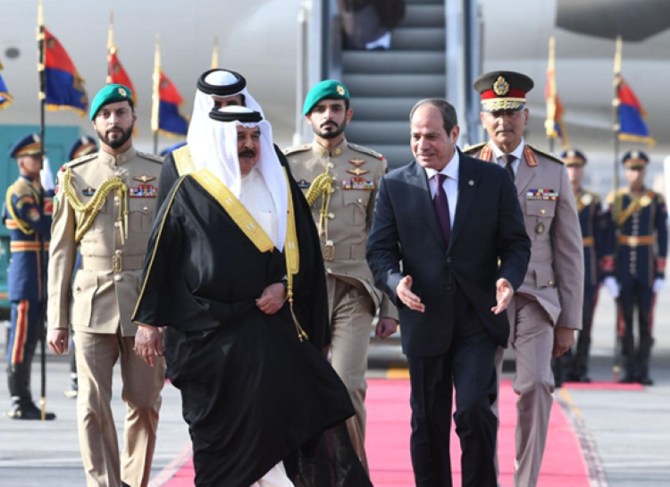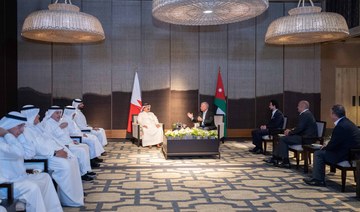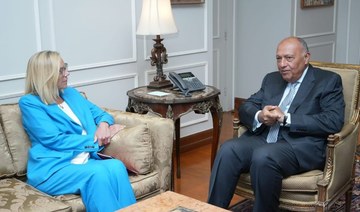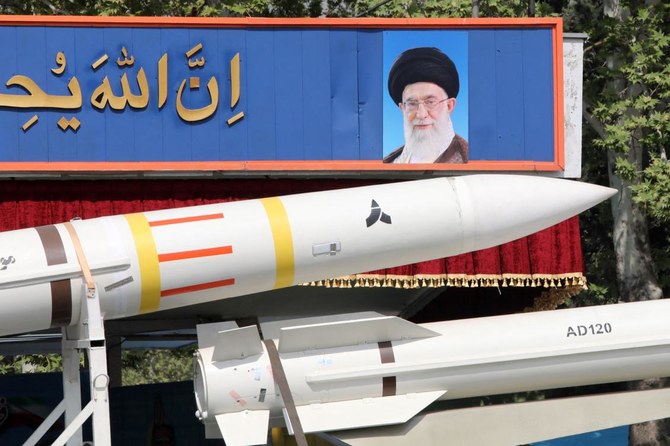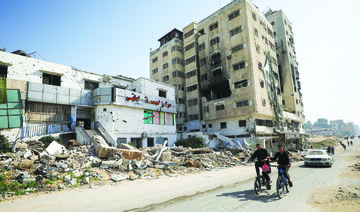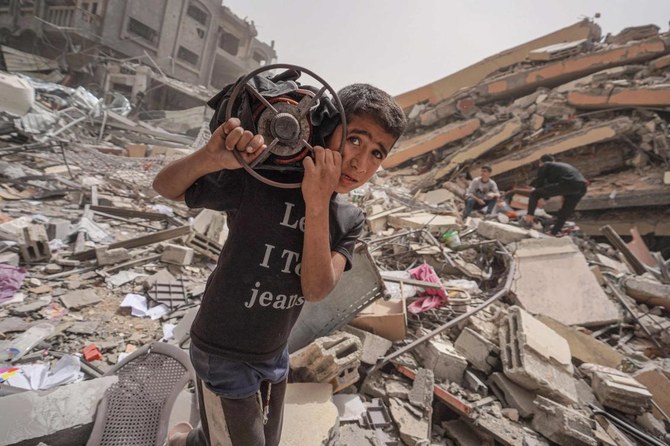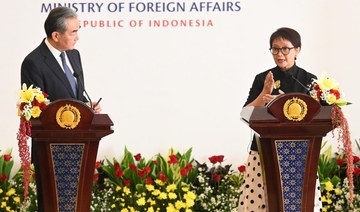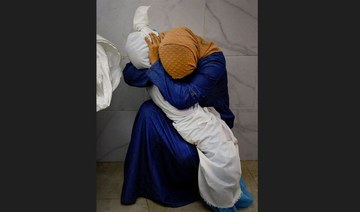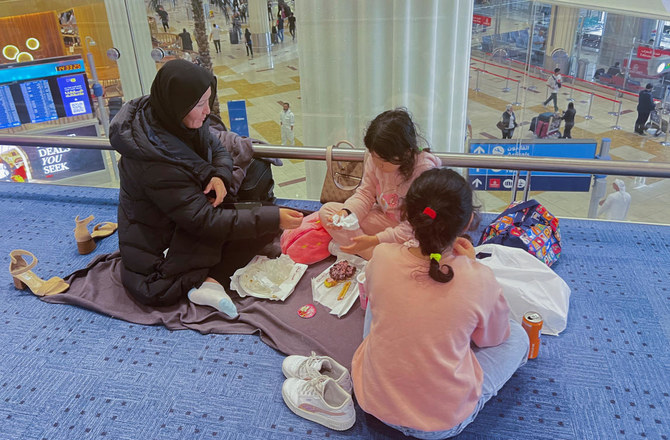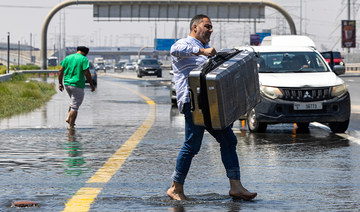ABU DHABI: One of the biggest challenges facing humanity as it grapples with global warming caused by greenhouse gas emissions is how to supply clean, renewable energy at a competitive cost where and when it is needed.
Fortunately, a renewable form of energy such as solar, which is generated only during the day, can now be converted into electricity non-stop. In theory, at least, this opens up the possibility of boundless energy for the 1.2 billion people living in societies along the Earth’s so-called sunshine belt.
Through efficient exploitation of renewable energy sources such as solar and wind, coupled with state-of-the-art energy storage systems, many countries can not only power their everyday lives in a way that was impossible before, but can also reduce their dependence on fossil fuels.
A small but significant step was taken recently in the Middle East when Azelio, a Swedish solar-energy company, entered into a partnership with the Abu Dhabi Future Energy Company (Masdar) and Khalifa University of Science and Technology to run a pilot project evaluating new technology in power storage.
“The technology is important in order to have access to energy, which builds growth and wealth,” Azelio’s CEO, Jonas Eklind, said.
INNUMBERS
- 1.2 BILLION - People in the world have no electricity
- 2.4 BILLION - People connected to grid that fails to deliver sufficient energy
- 27.3 GIGAWATTS - Saudi Arabia’s combined target of solar and wind energy by 2024
- 40% - Percentage of Kingdom’s electricity produced by burning oil in 2016
- 400 MEGAWATTS - Capacity of Dumat Al-Jandal, Saudi Arabia’s first and the Middle East’s biggest wind farm
“Without electricity, you cannot be part of the modern world. If you don’t have it and you wait for a centralized solution, you might wait 40 to 50 years. With our solution, you can have it next week.”
The Abu Dhabi unit aims to test and demonstrate Azelio’s Stirling engine systems and “integrated thermal energy storage” solution for projects that use solar energy and wind energy, or projects that provide off-grid solutions.
Testing will determine if the technology can be included in current as well as future renewable energy projects.
“What we are doing is a technology to store renewable energy in a wide sense, and it can be any type of renewable energy coming from any source,” Eklind said.
“We store a lot of energy and then convert that stored energy to electricity on demand. Consumers can then control when they want electricity.”
Azelio said that this “distributed base load” can be built in smaller-sized units close to consumers, which removes the need for a complex national grid system. The company also says that by adding an ingenious storage innovation to its Stirling engine, it makes electricity generated by a renewable source accessible at all hours of the day.
“It can be a local system that services, for instance, one factory, one village, one hotel or one desalination unit with whatever they need, 24 hours a day,” Eklind said. “We have worked with the technology for some years at more of a demonstration level and we have a unit in Sweden.
“We are also providing a reliable way forward for countless enterprises in remote locations around the world. Renewable electricity in its purest form is readily available exactly when it is needed. The opportunity for sustainable growth has never been greater.”
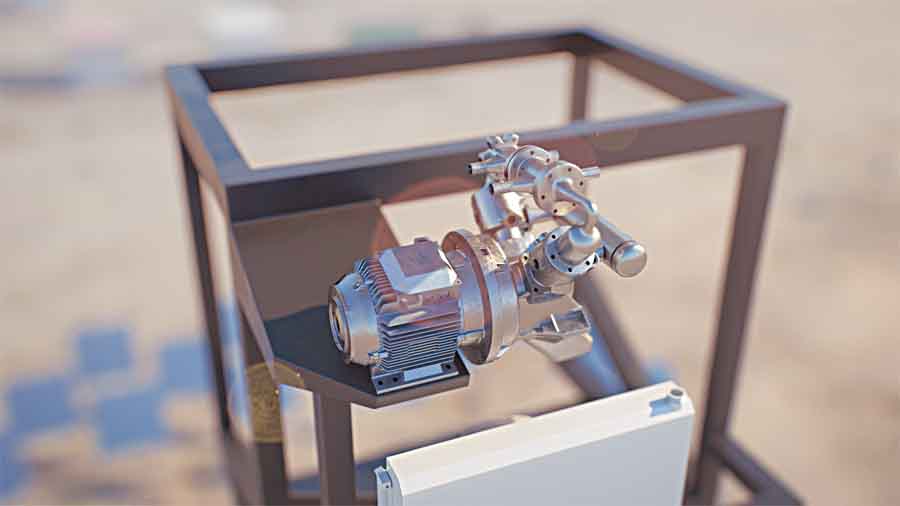
The Stirling engine efficiently converts thermal energy into mechanical movement to generate electricity. (Supplied)
Given that 1.2 billion people still have no electricity today and about 2.4 billion are connected to an electricity grid that cannot provide them with enough power, Azelio’s partnership with Masdar and Khalifa University of Science and Technology could not have been more timely.
“So for all these people, we could be a solution to give them a base load system instead of waiting 35 years for someone to build a national grid,” Eklind said.
As things stand, communities that are not connected to a stable grid are often forced to use generators, which entails burning diesel to generate electricity.
Azelio says that its system can replace a lot of the diesel burning, which benefits the climate and the environment. According to the company, the system is also less than half the price of conventional methods.
The company has installed a verification project of the technology for a state-owned firm in Morocco that is expected to be operating before the end of this year.
The Abu Dhabi unit will be Azelio’s second abroad.
Yousef Baselaib, executive director of sustainable real estate at Masdar, said: “With Masdar City established as the natural home for innovation in sustainable urban development and clean technologies, we are delighted to be working with Azelio and Khalifa University to help validate the commercial feasibility of their project.”
The pilot will be installed at the Sustainable Bioenergy Research Consortium site on the Masdar City campus of Khalifa University. Power generated from the project will be used to drive the air-conditioning for the project’s office and storage units.
“It’s general verification for the technology, but it is also special because Masdar wants to verify our technology to be a part of their projects. They build a lot of renewable energy projects and they need to have a source, especially in solar, which you don’t have at night,” Eklind said. “So we can essentially deliver solar energy in the middle of the night.”
Khalifa University will provide research support and expertise for the two testing periods, and the data collected by the researchers will be compared with findings from existing “dispatchable technologies.”
“As a research-intensive academic institution, Khalifa University offers one of the most suitable platforms for testing and demonstration of new technologies and solutions, especially in clean energy,” said Arif Sultan Al-Hammadi, executive vice president of the university.
Eklind said that even in the developed countries of northern Europe, electricity grids face challenges as a result of local electricity production with wind and solar.
Residents produce electricity with their own solar panels during the day, then use up the energy at night charging their cars, with no production during that period. “So they have a huge demand on electricity,” Eklind said, adding that the grid systems are not designed to cope with such types of fluctuation.
By contrast, Azelio’s technology builds stability and prepares the grid for new challenges, he said.
Referring to the partnership with Azelio, Al-Hammadi said: “Masdar Institute at Khalifa University will continue to serve as the research location for leading and cutting-edge scientific exploration in clean energy-related areas, including energy storage, biofuels, renewable energy mapping, advanced power and nuclear energy.
“As a research institute, it will continue to set fresh milestones while obtaining new solutions in clean energy and advanced sustainable technologies.”




